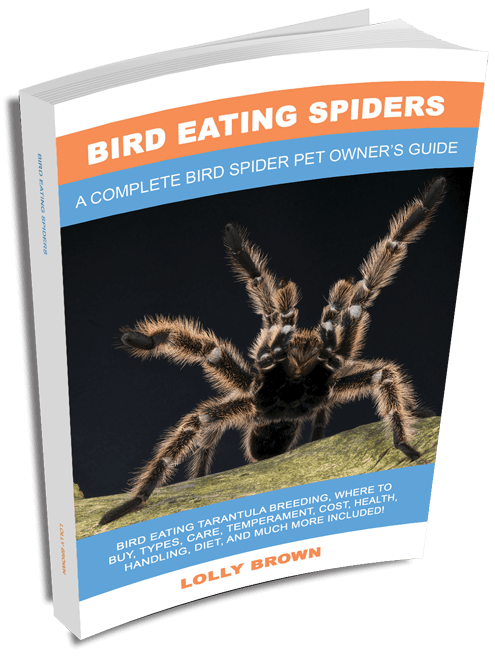TABLE OF CONTENTS
- Introduction 1
- Chapter One: Biological Information of Bird Eating Spiders 3
- Understanding Bird Eating Spiders 4
- Bird Eating Spider Facts and Physical Features 6
- Bird Eating Spider Behavioral Features 9
- Taxonomy, Origin and Distribution 11
- Chapter Two: Bird Eating Spiders as Pets 13
- Conservation and Licensing 14
- How Many Bird Eating Spiders Should You Keep? 16
- Do Bird Eating Spiders Get Along with Other Pets? 18
- Costs of Keeping a Bird Eating Spider 18
- Pros and Cons of Keeping Bird Eating Spiders 20
- Chapter Three: How to Acquire a Bird Eating Spider 23
- Reminders When Choosing Where to Buy 24
- Selecting Bird Eating Spiders 27
- Chapter Four: Habitat Set Up for Your Bird Eating Spider 29
- How to Set Up a Cage 30
- Enclosure Size 31
- Substrate 31
- Cage Furnishings 32
- Fake Plants 33
- Heat Pads 33
- Thermometers 34
- Temperature 34
- Humidity 34
- Proper Husbandry for Your Bird Eating Spiders 36
- Chapter Five: Bird Eating Spiders Handling and Behavior 39
- Bird Eating Spiders Behavior 40
- Tips for Handling Bird Eating Spiders 42
- Chapter Six: Feeding Your Bird Eating Spiders 47
- Tools to Use When Feeding Bird Eating Spiders 48
- How to Feed Your Bird Eating Spiders 50
- Chapter Seven: Breeding Your Bird Eating Spiders 53
- Sexing Bird Eating Spiders 54
- When to Breed Tarantulas 56
- Tools to Use When Breeding 57
- Mating Rituals 58
- Breeding Basics for Bird Eating Spiders 59
- Chapter Eight: Raising Bird Eating Slings 61
- How to Set Up the Enclosure 63
- Feeding Slings 64
- Feeding Reminders 65
- Hydration 66
- Maintenance 68
- Temperature and Humidity 69
- Chapter Nine: The Spider Molting Process 71
- Stages of Molting 72
- Intermolt 72
- Proecdysis 72
- Ecdysis 73
- Postecdysis 73
- Signs of Molting 74
- Chapter Ten: Summary and Care Sheet 77
- Index 99
- Photo Credits 103
- References 105
- Chapter One: Biological Information of Bird Eating Spiders 3

